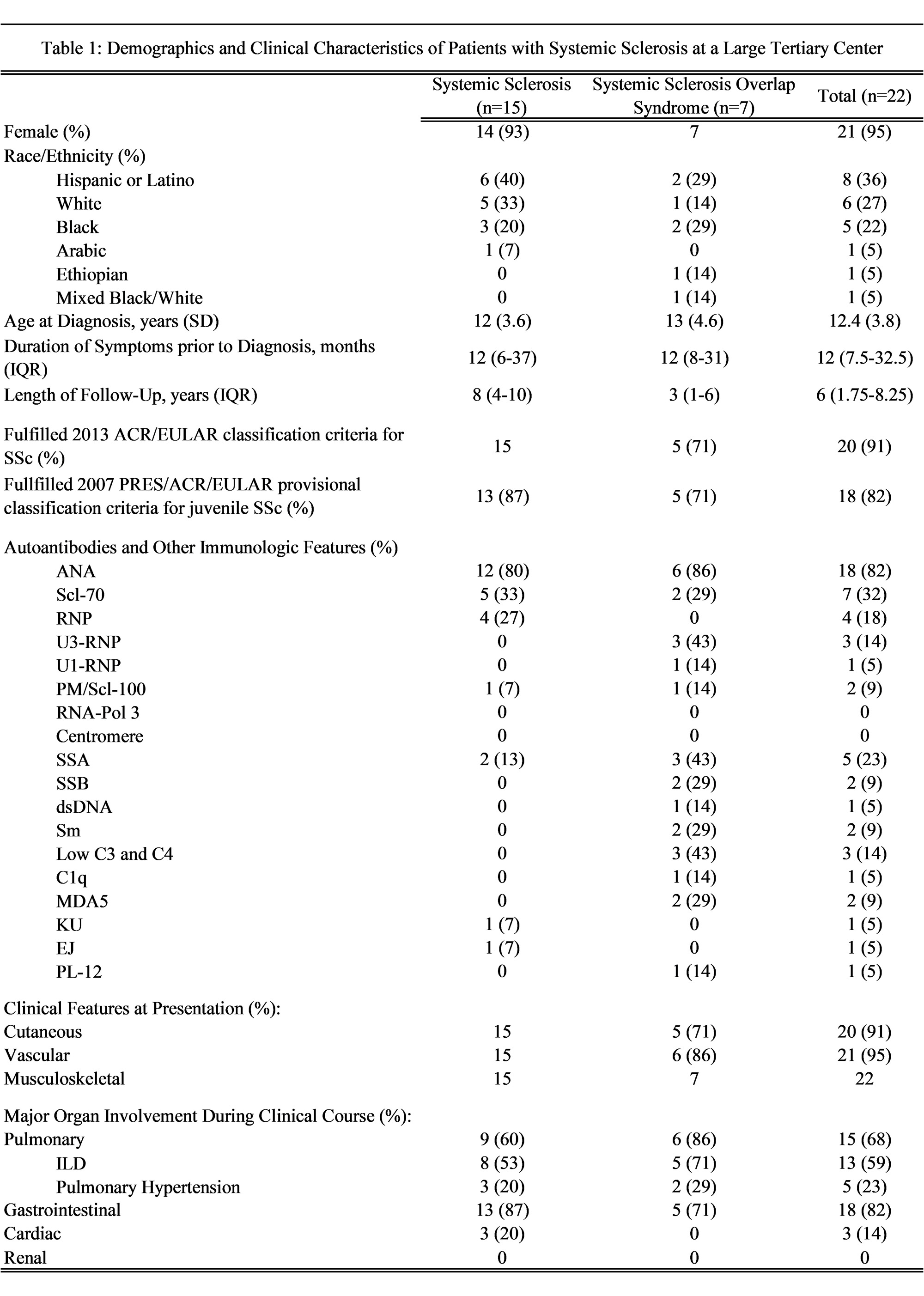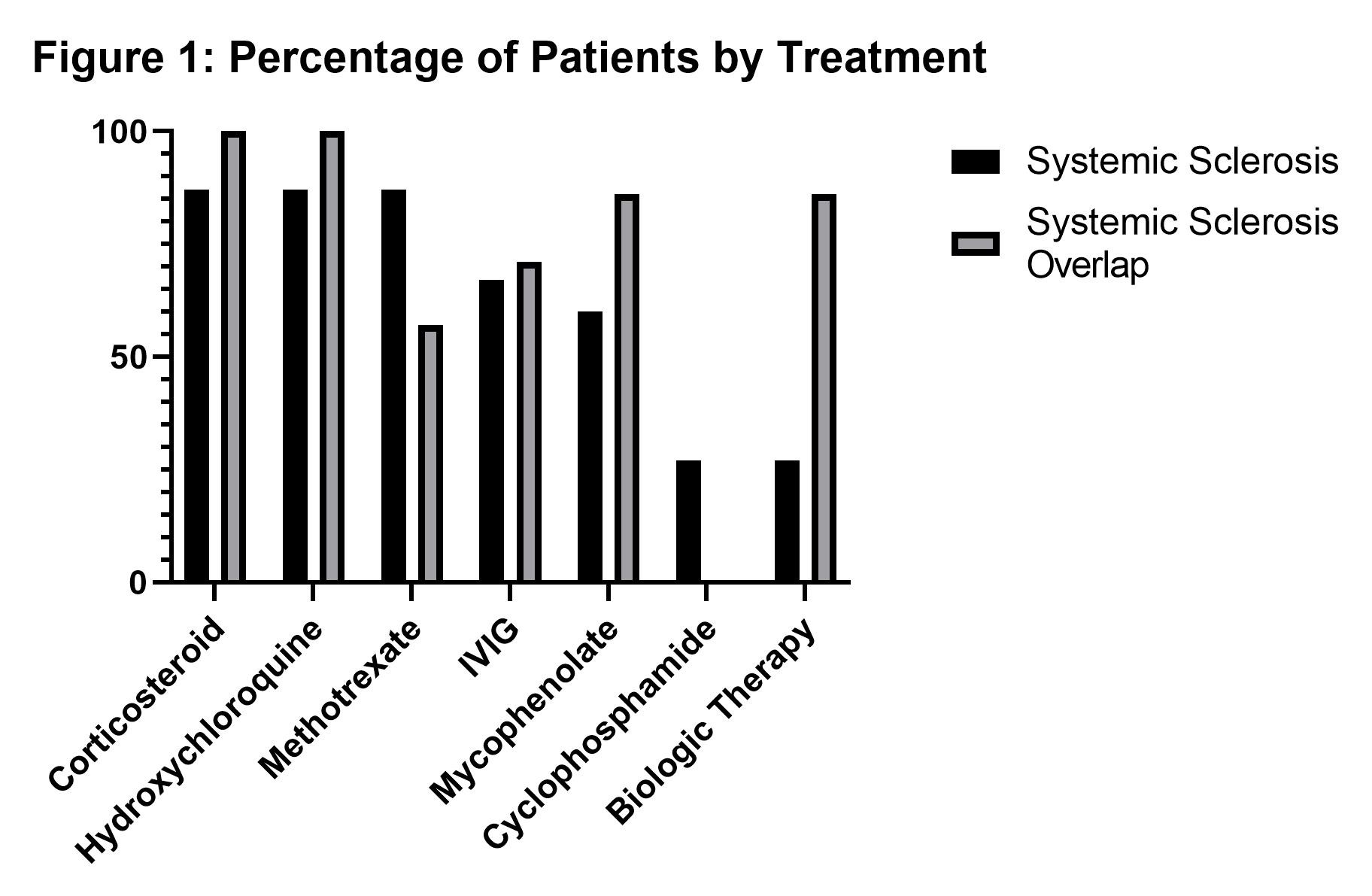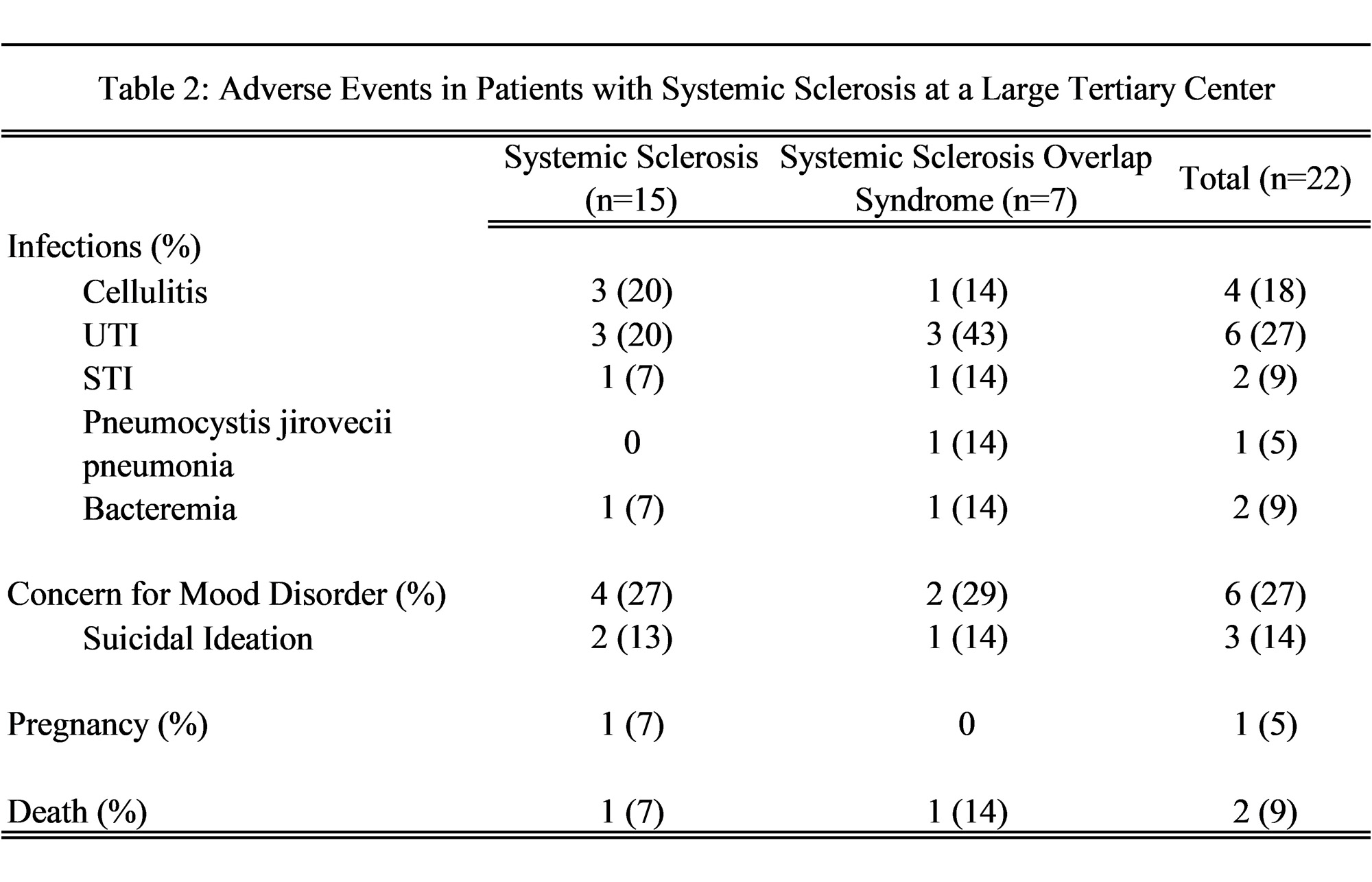Session Information
Date: Sunday, November 12, 2023
Title: (0609–0672) Systemic Sclerosis & Related Disorders – Clinical Poster I: Research
Session Type: Poster Session A
Session Time: 9:00AM-11:00AM
Background/Purpose: Childhood-onset systemic sclerosis (SSc) is a rare autoimmune multisystemic condition with immune, fibrotic, and vascular manifestations. Although progress has been made in recognizing this condition in children, pediatric outcomes are not well described. We report on clinical characteristics and long-term outcomes of pediatric patients diagnosed with SSc at our center.
Methods: Under IRB approval, we retrospectively reviewed patients with SSc between 2005 to 2023; 91% of patients fulfilled the 2013 EULAR/ACR classification criteria. Patients with SSc overlap syndrome who also fulfilled the 2017 EULAR/ACR juvenile dermatomyositis (JDM) classification criteria or 2012 SLICC criteria for lupus (SLE) were included. Demographics, clinical features, diagnostic findings, and outcomes were collected.
Results: A total of 22 patients were diagnosed with SSc: 15 (68%) classified as SSc between 2005-2022 and 7 (32%) classified as SSc overlap syndrome between 2015-2023 (n=4 with JDM overlap, n=1 with SLE, n=1 with Sjogren’s, and n=1 patient with both JDM and SLE features). Table 1 summarizes patient’s demographics and clinical characteristics. Six patients (27%) were diagnosed more than 24 months after symptom onset.
ANA was positive in 82% of patients, and 32% had Scl-70 antibody. No patients had anti-centromere or Pol III antibodies. U1-RNP or U3-RNP antibodies and hypocomplementemia were noted in overlap syndrome. Most patients had typical cutaneous, vascular, and musculoskeletal features at presentation. Pulmonary involvement was seen in 68% of patients, and 3 (all non-overlap) had worsening of their disease at their last visit. Gastrointestinal (GI) involvement was seen in 82% of patients; GERD and esophageal dysmotility being most common. Eleven patients (50%) had active or worsening GI disease at their last visit. Three patients developed cardiomyopathy with heart failure, and 2 required ICD placement. No patients developed renal disease throughout their course.
Patients received a range of immunomodulatory therapies (Figure 1); 20 (91%) received corticosteroids with 13 (59%) remaining on corticosteroids at their last visit. No patient with overlap syndrome received cyclophosphamide, however these patients were more likely to be on a biologic agent.
Three patients had interruptions in care due to insurance or financial reasons. Other adverse events are shown in Table 2. Out of 12 eligible patients, 5 were successfully transitioned to an adult scleroderma center of excellence, 3 to other adult rheumatologists, and 4 did not have any transition records available at the time of the study.
Conclusion: Childhood-onset SSc and SSc overlap syndrome are rare and potentially life-threatening autoimmune conditions, and this cohort addresses a gap in knowledge about long-term outcomes. Cardiopulmonary and GI involvement remained a significant source of morbidity despite multimodal therapy. Treatment including corticosteroids was well tolerated. Defining the differences in clinical course and prognosis between juvenile SSc and SSc overlap syndrome are limited by the nature of the study, the small cohort, and variability in available treatments at the time of caring for the patient.
To cite this abstract in AMA style:
Nguyen J, Ramirez A, Pereira M, Muscal E, Silva-Carmona M, De Guzman M. Clinical Characteristics and Longitudinal Outcomes of Patients with Childhood-Onset Systemic Sclerosis at a Tertiary Center [abstract]. Arthritis Rheumatol. 2023; 75 (suppl 9). https://acrabstracts.org/abstract/clinical-characteristics-and-longitudinal-outcomes-of-patients-with-childhood-onset-systemic-sclerosis-at-a-tertiary-center/. Accessed .« Back to ACR Convergence 2023
ACR Meeting Abstracts - https://acrabstracts.org/abstract/clinical-characteristics-and-longitudinal-outcomes-of-patients-with-childhood-onset-systemic-sclerosis-at-a-tertiary-center/



